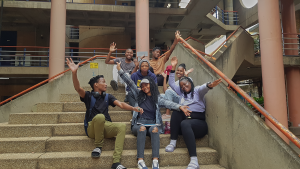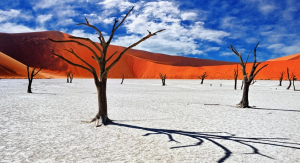
Hello world!
Lorem Ipsum is simply dummy text of the printing and typesetting industry. Lorem Ipsum has been
Infrastructure Development
A substantial portion for investing in constructing and enhancing infrastructure on the continent. This includes the constructing and improvement of roads, bridges, railroads, harbors, and airports, which would facilitate trade, enhance connectivity, and stimulate economic activity. Additionally, prioritizing investments in renewable energy initiatives to provide remote and underserved communities with access to electricity.
Education Systems and Skills Development
Education is essential for empowering individuals in Africa and nurturing long-term economic growth. Considerable funds should be allocated to the education systems to enhance access to high-quality education at all levels, from elementary schools to universities. This would involve constructing schools, training instructors, and providing students with scholarships. Moreover, prioritizing vocational training programs and technical institutes that empower individuals with the skills necessary for employment in various industries of innovation.
Sanitation and Healthcare
Access to high-quality healthcare is essential for enhancing the well-being of individuals and communities. Investing in the construction and renovation of healthcare facilities, guarantees the availability of vital medical equipment and supplies. Funding would also be allocated to support initiatives to improve sanitation and access to pure water, thereby addressing the underlying causes of preventable diseases and waterborne diseases such as Typhoid, Bilharzia, and Cholera in Africa.
Agricultural Development
Agriculture is a vital sector in Africa. Additional funds to support small-scale farmers would provide access to modern farming techniques, improved seeds, irrigation systems, and storage facilities. Investing in agricultural research and development would enhance productivity and food security, while also promoting sustainable farming practices and reducing the impact of climate change.
Entrepreneurship and Job Creation
Creation of programs and initiatives to encourage entrepreneurship and generate employment opportunities, especially for adolescents and women. This would provide access to affordable financing, training in business development, and mentoring programs across countries in Africa. In addition, supporting the expansion of small and medium-sized businesses for economic development and job creation to reduce the high levels of unemployment.
Environmental Conservation and Development
Environmental conservation and sustainable development would be incorporated into all programs and initiatives. A significant amount should be allocated to protect and restore ecosystems, support climate change adaptation and mitigation efforts, and promote renewable energy sources. Investing in sustainable practices would safeguard Africa’s natural resources for future generations and assure the long-term viability of economic development.
Good Governance and Institutional Strengthening
Resources should be allocated to support reforms in governance and institutional strengthening to maximize effective utilization and guarantee an efficient use. This would involve enhancing transparency, accountability, and the rule of law. Investing in government institution capacity building and promoting anti-corruption measures would further an environment conducive to sustainable development.
Water and Energy
1. a) Water: Allocated to the construction and improvement of water infrastructure, including dams, reservoirs, and water treatment facilities that can support irrigation schemes, especially in the dry parts of the region.
2. b) Energy: Investing in the development of renewable energy sources. This would aid rural and underserved areas in gaining access to clean and safe water for drinking, agriculture, and sanitation purposes. The fund’s allocation program also considers prioritizing investments in renewable energy sources like solar, wind, and hydropower. This would contribute to expanding access to electricity, decreasing reliance on fossil fuels, and promoting sustainable development.
Pipeline development in Africa
Constructing and maintaining pipelines to transport resources such as oil, gas, and water. This infrastructure would support economic growth, improve energy security, and facilitate the efficient distribution of resources throughout the continent.
Climate Change
Investing in initiatives of promoting adaptation and mitigation strategies to address the challenges of climate change. This includes supporting renewable energy projects, implementing reforestation and afforestation programs, promoting sustainable land management practices, and bolstering climate resilience in vulnerable communities.
Conclusion
Implementing such an ambitious plan in Africa requires close cooperation between governments, international organizations, and local communities. Transparent and inclusive decision-making processes would ensure the economic strength of Africa. In addition, continuous monitoring and evaluation would be required to assess the impact of investments and the necessary adjustments. It is essential to recognize that the requirements and priorities of each nation in Africa varies, adopting a strategic approach which addresses key areas of development would promote inclusive and sustainable growth.

Lorem Ipsum is simply dummy text of the printing and typesetting industry. Lorem Ipsum has been

Lorem Ipsum is simply dummy text of the printing and typesetting industry. Lorem Ipsum has been

Lorem Ipsum is simply dummy text of the printing and typesetting industry. Lorem Ipsum has been
© 2025 Americs. All Rights Reserved. Developed by Official Companies.